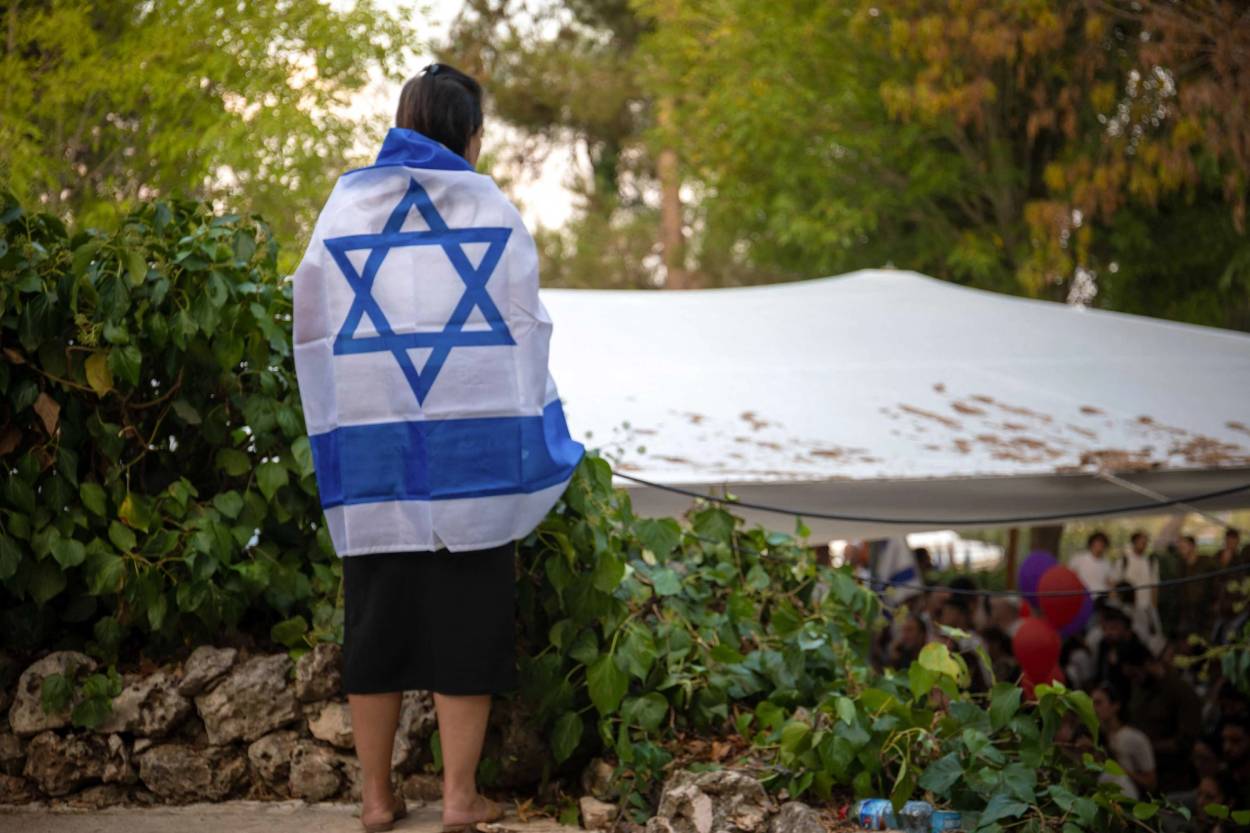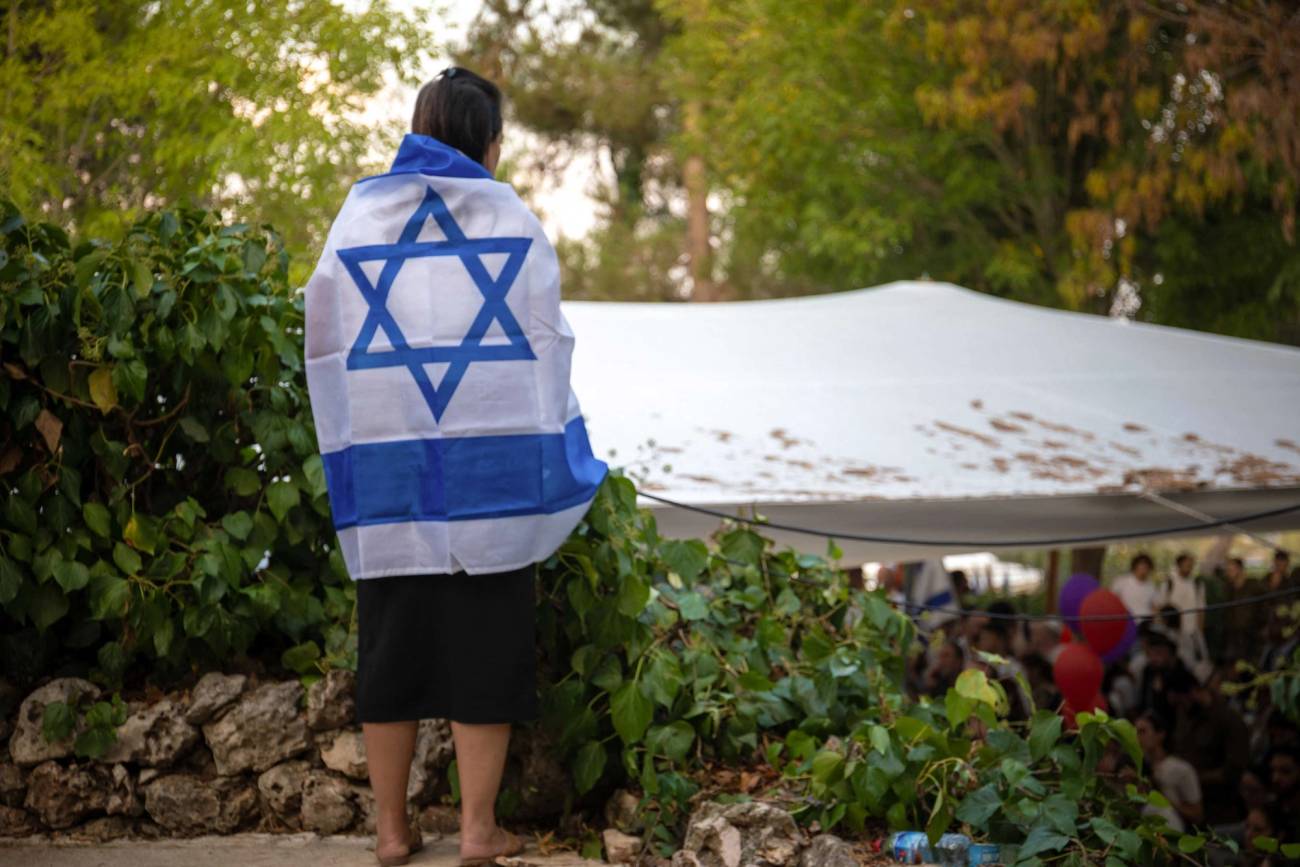Get a Little More Religious
You know you want to

Yahel Gazit/Middle East Images/AFP via Getty Images

Yahel Gazit/Middle East Images/AFP via Getty Images

Yahel Gazit/Middle East Images/AFP via Getty Images

Yahel Gazit/Middle East Images/AFP via Getty Images
“Every blatt Gemara is a missile,” Rav Noach Isaac Oelbaum said on Oct. 29, addressing a New Jersey siyum for the daf yomi cycle’s completion of Seder Nashim. “Every tosfos is a rocket. Every kapitel tehilim is a bomb.” Under the metaphysics the Queens-based rabbi alluded to, a Jew’s mere reading of holy words is powerful enough to answer deadly acts of evil, and to serve as a physical defense for strangers thousands of miles away. This would mean that every Jew can affect a real and meaningful improvement in reality wherever they are and at any time, even if the study of Gemara and Tosofos are beyond their ability. They’re certainly beyond my ability, but my fellow amei ha’aretz can still fall back on the compactly musical devotional poems of King David, whose genius lies in their being punchy, memorable, and short. Bombs will have to do for us, but that’s more than enough. Open up the ArtScroll edition of Sefer Tehilim and you will find a handy, one-page guide as to which psalms should be said for the sick, which should be said for success in Torah study, and which should be said when the land of Israel is in danger.
Religious Jews base their lives on the idea that even seemingly innocuous choices—in dress, in diet, in the brief sequences of words said upon waking up in the morning and before going to sleep—are part of a larger system for sanctifying reality. And not just a larger system, but our system. While Judaism’s moral and metaphysical claims are meant to apply to everything, its obligations and its many wonderful and baffling peculiarities belong only to us. Less-religious Jews tend to downplay the obligatory aspects of our ethnoreligious existence, instead emphasizing this nefesh-level instinct that we’re all a part of a weird and unkillable little club. That club formed at least 2,500 years before the State of Israel’s founding. In fact it formed centuries before the creation of any modern state. If the full realization of a Jewish society can only be found in Israel, the merging of cosmic obligation and ancient belonging can be realized just about anywhere. Religious practice—mitzvohs, text study, wrapping strange black boxes around your arm and forehead—gives Jews the power to enact our crucial and distinct place in HaShem’s universal order wherever we want to.
In recent years, Jews of various backgrounds have discovered that Judaism actually makes a whole lot more sense if there’s religion involved. The Reform movement’s new emphasis is on “doing Jewish”; Chabad houses have proliferated around the world by offering parsha classes and Shabbat meals. In Israel there are now musical kabbalat Shabbat services at the Old Port complex in hypersecular north Tel Aviv, while the works of even a cutting-edge, high-literary experimenter like Youval Shimoni return to the theme of how impossible it is for Jews to escape the primal origins of practice and belief, no matter how much we’d like to and no matter how hard we’ve tried over the millennia. In Israel the words of Rabbi Nachman of Breslov are a soccer chant, and at the rebbe’s grave in Uman you are guaranteed to see a visible minority of the less-religious every Rosh Hashanah.
In the living nightmare after Oct. 7, religion has become one of the few unifying forces for Jews around the world that is actually positive. Tragedy, anger, horror at the revealed beliefs of friends and neighbors, and justified fear of what might be coming has drawn Jews closer to one another while also forcing us to take account of what’s always been there, the sources of meaning that have endured through crises far worse than the current one. Anyone who danced on the street the night of Simchat Torah had already steeled themselves for how awful and unthinkable the coming days would be. Synagogues and Shabbat tables were fuller than usual in the weeks after the Hamas rampage. A long-dormant Talmudic study group suddenly roared back to life in my WhatsApp messages. During the first week of the war, a choir of Viznitzer Hasids, decked out in frock coats and shtreimels, sang for refugees from southern Israel, the kibbutz folk and Haredim erupting in an almost utopian dance party.
Since Oct. 7 the religious claims on reality do not seem so fanciful. Belief, in both its stricter and looser forms, turns out to be an unusually powerful antidote to despair—in fact, as Rebbe Nachman said in a time and place where Jews were under constant physical threat, there is no such thing as despair. That despair is a self-generated fiction or the lying voice of the yetzer haroh, rather than a natural response to external phenomena, is just as extravagant an assertion, just as dismissive of arrogantly rational modern sensibilities, as Rav Oelbaum’s idea that studying a blatt of Gemara can act as our own special counterbalance to weapons of terror. Perhaps one legacy of Oct. 7 will be a growing discovery that living without such seemingly wild notions of how and why we exist as Jews is impossible.
Armin Rosen is a staff writer for Tablet Magazine.